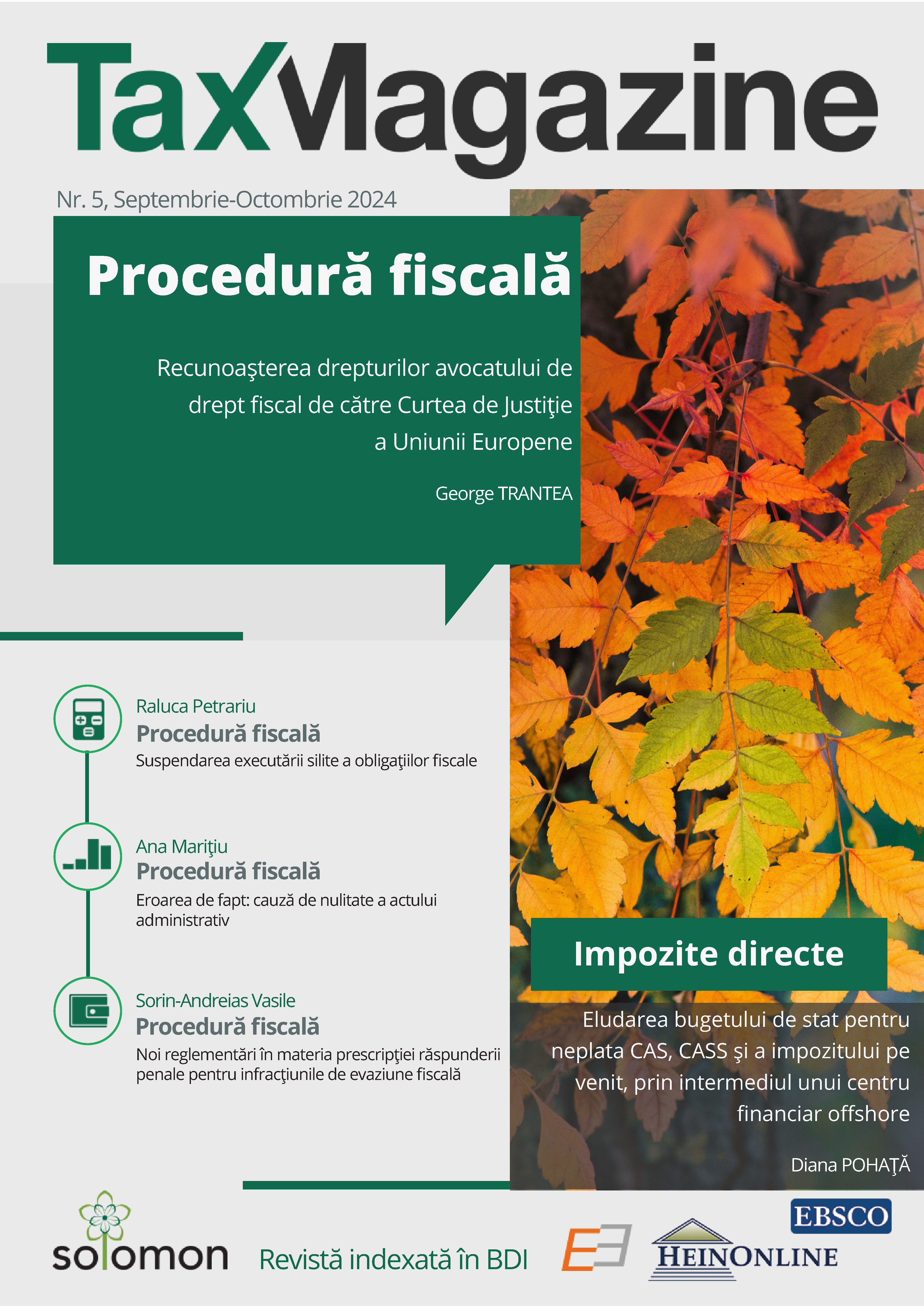Noi reglementări în materia prescripției răspunderii penale pentru infracțiunile de evaziune fiscală
New regulations concerning the statute of limitations for criminal liability in tax evasion offenses
Author(s): Sorin Andreias VasileSubject(s): Criminal Law, Law on Economics, Fiscal Politics / Budgeting
Published by: Editura Solomon
Keywords: Law No 241/2005 on preventing and combating tax evasion; Law No 126/2024 on amending Law No 241/2005; tax evasion; prescription of criminal liability; continuous offense; prescription period;
Summary/Abstract: The amendments to Law No. 241/2005 on combating tax evasion, introduced by Law No. 126/2024, include a new article (Art. 101) that changes the starting point for the statute of limitations for criminal liability in cases of tax evasion. Under the new provision, the statute of limitations begins from the date of notification to the fiscal authority or the criminal investigation body, but no later than 10 years from the commission of the offense. This article introduces a departure from the general rules of the Criminal Code and may create ambiguities regarding continuous or continued offenses. For continued tax evasion offenses, the new provision raises issues concerning the calculation of the statute of limitations, as the period starts from the time of notification, even if the material acts of the offense continue afterwards. This scenario could encourage offenders to persist in illegal activities, potentially undermining the effectiveness of the rule. Additionally, the provision poses risks of arbitrary interpretation by judicial authorities.
Journal: Tax Magazine
- Issue Year: 2024
- Issue No: 5
- Page Range: 373-377
- Page Count: 5
- Language: Romanian
- Content File-PDF

